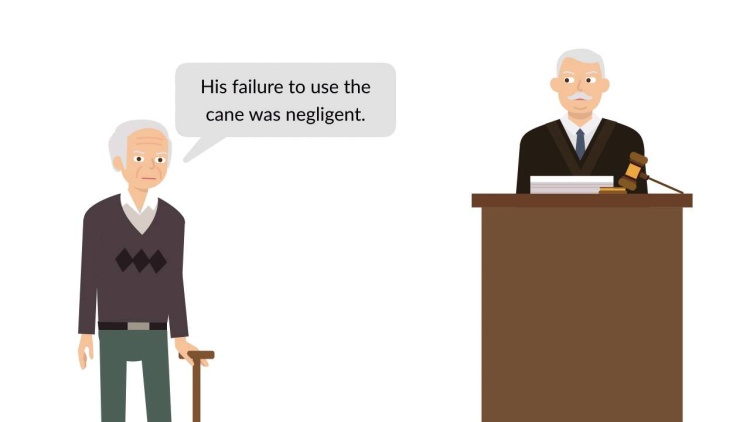Roberts v. State of Louisiana
Louisiana Court of Appeals
396 So.2d 566 (1981)
- Written by Lauren Petersen, JD
Facts
Mike Burson, a blind man who used a cane to travel to and from work, operated a concession stand in the lobby of the post office from 1974 until the date of the accident at issue. Burson had special mobility training and good mobility skills with and without his cane. Burson relied on his facial sense for short trips inside the post office because he was familiar with the layout. On September 1, 1977, Burson left the concession stand without his cane to go to the bathroom inside the building. On his way to the bathroom, Burson bumped into William C. Roberts (plaintiff). As a result, Roberts fell and injured his hip. Roberts sued the State of Louisiana (defendant), under the theory of respondeat superior and negligent failure to supervise and oversee the safe operation of the concession stand. Louisiana operated the concession stand under a federal program implemented by the state. Testimony at trial revealed that it was not uncommon for the blind to rely on techniques other than a cane to move around familiar settings. The director for the Division of Blind Services testified that nine out of ten blind persons did not use a cane in a relatively busy area because it could be more of a hazard. Conversely, Roberts’ expert testified that Burson was negligent for not using a cane to traverse the area outside the concession stand. The trial court dismissed the suit. Roberts appealed to the Louisiana Court of Appeals.
Rule of Law
Issue
Holding and Reasoning (Laborde, J.)
What to do next…
Here's why 905,000 law students have relied on our case briefs:
- Written by law professors and practitioners, not other law students. 47,100 briefs, keyed to 995 casebooks. Top-notch customer support.
- The right amount of information, includes the facts, issues, rule of law, holding and reasoning, and any concurrences and dissents.
- Access in your classes, works on your mobile and tablet. Massive library of related video lessons and high quality multiple-choice questions.
- Easy to use, uniform format for every case brief. Written in plain English, not in legalese. Our briefs summarize and simplify; they don’t just repeat the court’s language.







